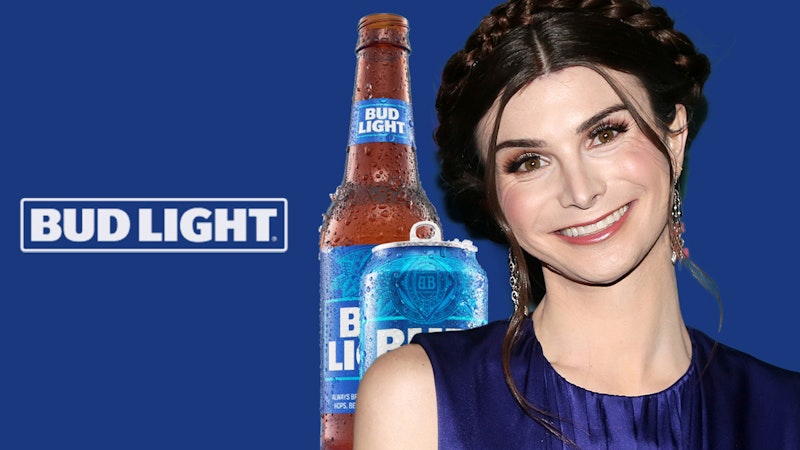Bud Light is trying to win back the customers it alienated due to its Dylan Mulvaney controversy earlier this spring. The beer, owned by Anheuser-Busch, gave the man, who identifies as a woman, with a custom pack of beers featuring Mulvaney's face on them, coupled with a positive letter.
Many conservatives weren’t happy. As a result, sales are down 25 percent. Bud Light has taken action; its recently-released "Easy to Summer" 60-second ad features what appears to be Americans enjoying their summer. It includes old white guys, dogs, and cookouts. As a conservative, that should appeal to me. True Americana.
However, as a social conservative, I take more issue with Bud Light’s attempts to win people back than the original controversy. Anheuser-Busch is a multi-billion dollar company. Woke capitalism is nothing new for such entities. I don’t support it and reject the concept of transgenderism. A man can’t become a woman or vice versa. We should acknowledge that while also treating people who may suffer from mental health issues like body dysmorphia and gender dysphoria compassionately. Such people often suffer from depression and anxiety. Society and the state must do more to improve people's mental health. But what won’t help people's mental health? More alcohol consumption. One of the antidotes to improving societal mental health would be finding ways to reduce substance abuse. Yet, Bud Light wants to do the opposite; it wants more people to consume its product.
A broad scientific consensus says that children who see more ads for alcohol, on television, the internet, on billboards, or in stores, are not only more likely to become underage drinkers but problem drinkers later in life, according to the National Library of Medicine. It means, at least for younger people, these ads result in increased consumption.
About 17 percent of the adult population reports binge drinking. People may think of liver damage, DUIs, car crashes, and the 140,000 premature deaths it causes each year as the chief problems with alcohol consumption in America. Those are serious, but the issues stem far beyond them. Alcohol fuels violence, including domestic violence. It also leads to self-harm; alcoholics are more likely to commit suicide, and one-fourth of suicides involve alcohol. Excessive alcohol consumption results in more risky sexual behavior. It includes casual sex without contraception (or misusing contraception), from both men and women, which results in more sexually transmitted diseases and unwanted pregnancies. Unwanted pregnancies result in unborn babies killed via abortions. Whether you're pro-life or not, it’s not a good situation. It also hurts unborn children in the womb and can cause birth defects.
Alcohol is objectively bad for people’s mental health. It worsens problems like depression and anxiety long-term. And even that temporary good feeling is not true for everyone; some people are pricks when they drink. Americans live in one of the fattest countries in the world, and alcohol makes us fatter. Not only does it have calories people may not otherwise consume, but it also slows our ability to burn fat and makes us hungry.
There’s the opioid epidemic. More than 100,000 Americans die of drug overdose deaths per year. While nearly all of these deaths involve fentanyl, and some cocaine, alcohol was present with more than one-quarter of such deaths in Massachusetts in 2022. Not only does it cause the type of poor decision-making that leads to people doing dangerous drugs, but it also contributes to prescription opioid misuse. I've learned that many people who die of drug overdoses never intended to do fentanyl. But nowadays, people cut cocaine with fentanyl. Familiar with some upper-middle-class white guys, I know that drunk people sometimes do cocaine. I know more people who occasionally blow lines than I care to admit, though I’m not one of them.
There is also the fiscal angle. The Centers for Disease Control says excessive alcohol consumption costs the country $249 billion annually, and taxpayers foot two-fifths of that ($100 billion). These alcohol ads are dangerous if you’re trying to cut back or quit. Alcohol is the last thing they want to think about. Yet, its promotion is everywhere.

